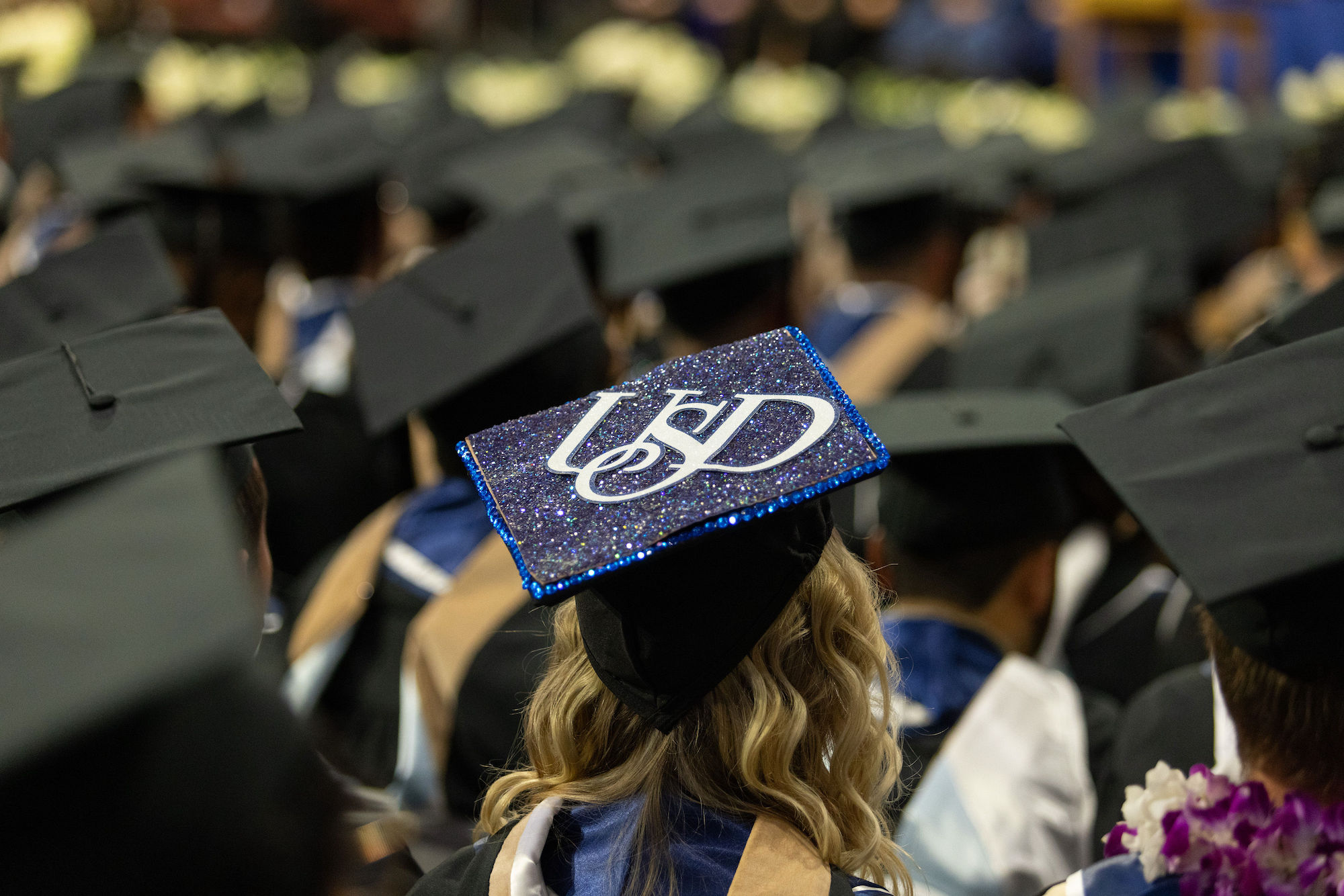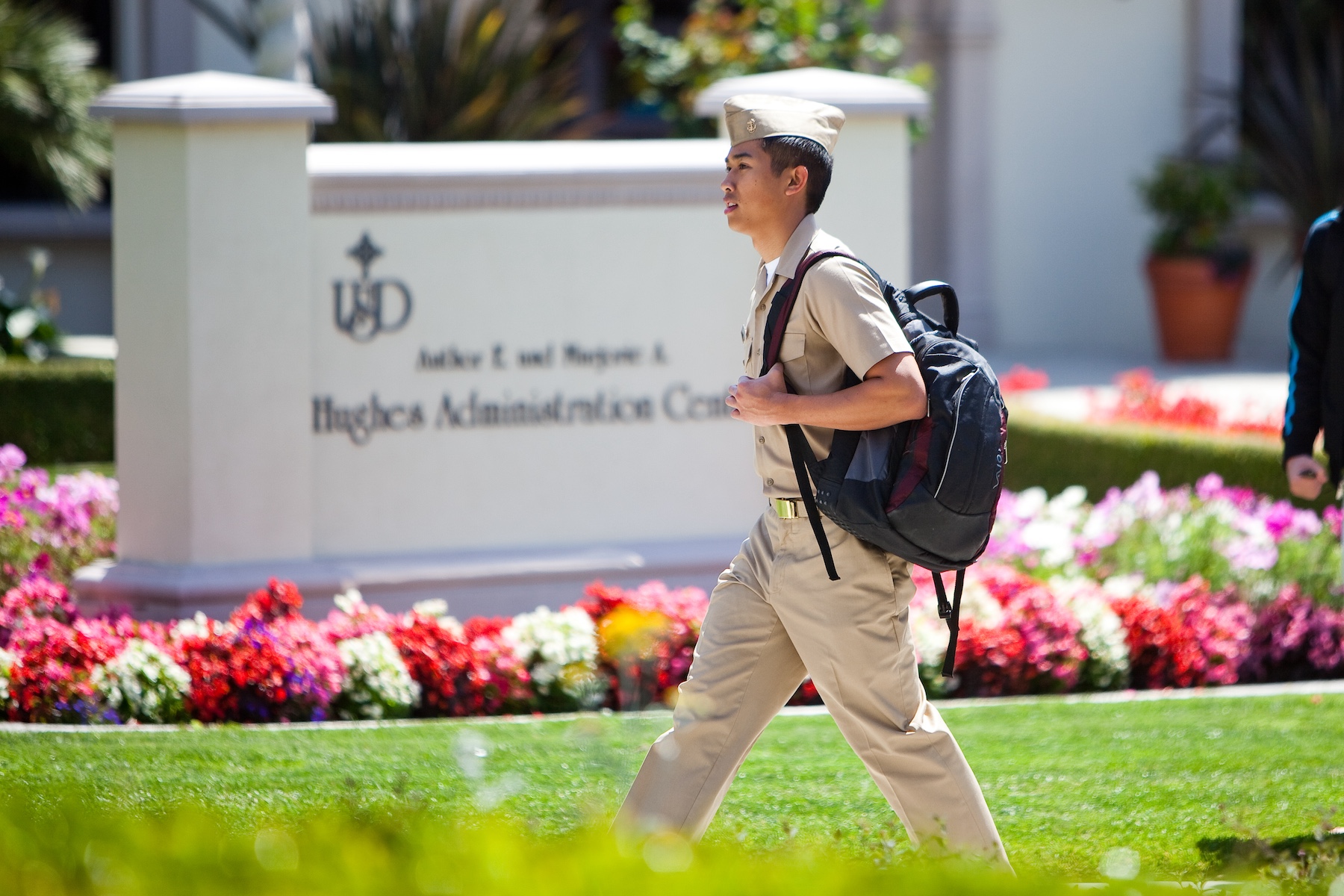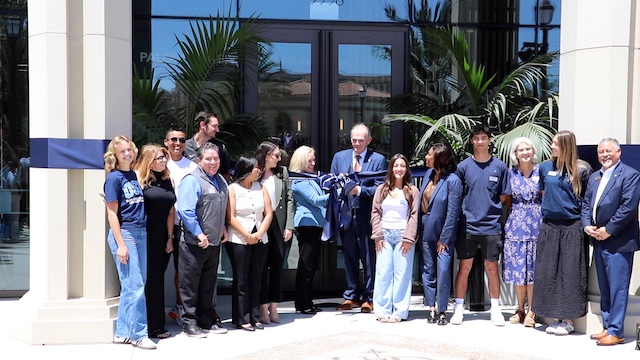IPJ Welcomes 2007 Women PeaceMakers
Four women who have worked on the frontlines to end violence and secure peace around the world are telling their stories as part of the Joan B. Kroc Institute for Peace & Justice (IPJ) 2007 Women PeaceMakers Program.
The IPJ recognizes that women have an essential role in the building of a just and lasting peace. This program is one outlet for the growing need to give women a strong voice and presence in human rights and peacemaking during these turbulent times of war and violence.
The Women PeaceMakers Program is a selective program for leaders who want to document, share and build upon their unique peacemaking experiences. During the annual eight-week residency program, the women – this year from Palestine, Cameroon, Indonesia and South Ossetia - will reside on the University of San Diego campus and have the rare opportunity to record their experiences, activities and insights. They will share their stories through writing and videotaping their reflections and participate in dialogue groups and workshops to exchange ideas and approaches to peacemaking and justice.
The first opportunity for students, faculty and guests to hear the remarkable stories of these four peace crusaders is Thursday, Oct. 4, during the IPJ Women PeaceMakers panel, entitled “Peace is a Matter of Justice Everywhere.” The panel discussion will be held from 7 to 8:30 p.m. in the IPJ Theatre. Each woman will also take part in the “Conversation with a Woman PeaceMaker” series, which will focus on individual peace maker stories and give the women a profound opportunity to share their insights on the struggle for equality for women.
A highlight of the 2007 program is the Women PeaceMakers Summit, “Is Peace Possible,” on Oct. 23 and 24. This is a two-day conference to mark the 5th anniversary of the program. Past program participants will return to the campus to update the IPJ and the San Diego community on their work and share how they are handling some of the treacherous obstacles to peace.
The 2007 Women PeaceMakers and their panel discussions include:
Susana Tenjoh-Okwen of Cameroon: Tenjoh-Okwen is a teacher, community peace mediator and facilitator promoting social and economic empowerment, and a respected gender activist who has active peace building experience in two provinces of Cameroon. As technical adviser for women’s affairs in the Ashong Cultural and Development Association of Bamenda, a founding member of the Moghamo Women’s Cultural and Development Association of Cameroon and president of Moghamo Women’s Association, Tenjoh-Okwen has worked to address causes of long-standing intertribal conflict that has resulted in division, displacement and trauma for many people in several regions. Tenjoh-Okwen will lead the session “Uniting Women to Overcome Long-standing Inter-tribal Hostilities,” on Oct. 9 from 12:30 to 2 p.m. at the IPJ Theatre.
Samia Bamieh of Palestine: Bamieh is a founding member and respected leader of the International Women’s Commission for a Just and Sustainable Palestinian-Israeli Peace (IWC) and is chairperson of its Palestinian Steering Committee. Bamieh, who helped formulate the Palestinian government’s Plan of Action on gender after the U.N. Fourth World Conference on Women in Beijing, China, was the director of gender policies and training in the Palestinian Directorate of Gender and Development of the Ministry of Planning and International Cooperation. She will lead a discussion entitled, “Weaving Women’s Rights into an Independent Democratic State,” on Oct. 11, from 12:30 to 2 p.m. at the IPJ Theatre.
Irina Yanovskaya of South Ossetia (Georgian-Ossetian conflict zone): Yanovskaya is a journalist, lawyer, chair of the non-governmental organization Journalists for Human Rights and a children’s advocate focused on post-conflict healing and peace education for children. She is devoted to resolving the conflict between Georgians and Ossetians. Yanovskaya was nominated for the Nobel Piece Prize in 2005 for her work to help war-traumatized children and women to overcome the horrors they witnessed, and for her efforts to reopen the doors that once existed in mixed communities of Ossetian and Georgian people now torn apart by hate and suspicion. She will lead the session “Liberating Minds Imprisoned by War Trauma and Media Bias,” on Oct. 16 from 12:30 to 2 p.m. at the IPJ Theatre.
Latifah Anum Siregar of Indonesia: Siregar is a human rights lawyer, the chairperson of the Alliance for Democracy in Papua (ALDP) and an expert at the Commission for Law and Human Rights of the parliament in Papua Province. Although from a different island, speaking a different language and practicing a different religion, she is a trusted, effective advocate for peace working within the complex tribal and migrant conflicts of Papua communities. Siregar will lead the discussion, “Reviving Traditional Law to Transform Contemporary Tribal and Migrant Disputes,” on Oct. 18 from 12:30 to 2 p.m. at the IPJ Theatre.
The Women PeaceMakers Program began in 2003 and is made possible through a generous grant from the Fred J. Hansen Foundation. For more information on the Women PeaceMakers program, go to http://peace.sandiego.edu/programs/women.html.
The University of San Diego, a Catholic Institution of higher learning chartered in 1949. The university enrolls approximately 7,500 students and is known for its commitment to teaching, the liberal arts, the formation of values and community service. The inauguration this fall of the Joan B. Kroc School of Peace brings the university’s total number of schools and colleges to six. Other academic divisions include the College of Arts and Sciences and the schools of Business Administration, Education, Law and Nursing and Health Science.
-end-
About the University of San Diego
Strengthened by the Catholic intellectual tradition, we confront humanity’s challenges by fostering peace, working for justice and leading with love. With more than 8,000 students from 75 countries and 44 states, USD is among the Top 20 Best Private Schools for Making an Impact according to The Princeton Review. USD’s eight academic divisions include the College of Arts and Sciences, the Knauss School of Business, the Shiley-Marcos School of Engineering, the School of Law, the School of Leadership and Education Sciences, the Hahn School of Nursing and Health Science, the Joan B. Kroc School of Peace Studies, and the Division of Professional and Continuing Education. In 2021, USD was named a “Laudato Si’ University” by the Vatican with a seven-year commitment to address humanity’s urgent challenges by working together to take care of our common home.



